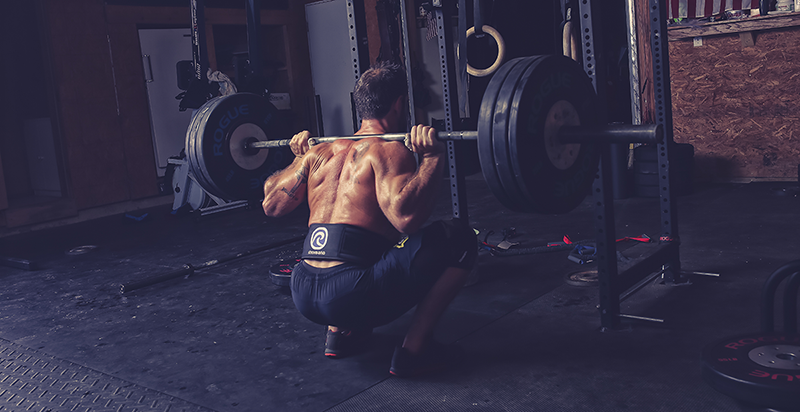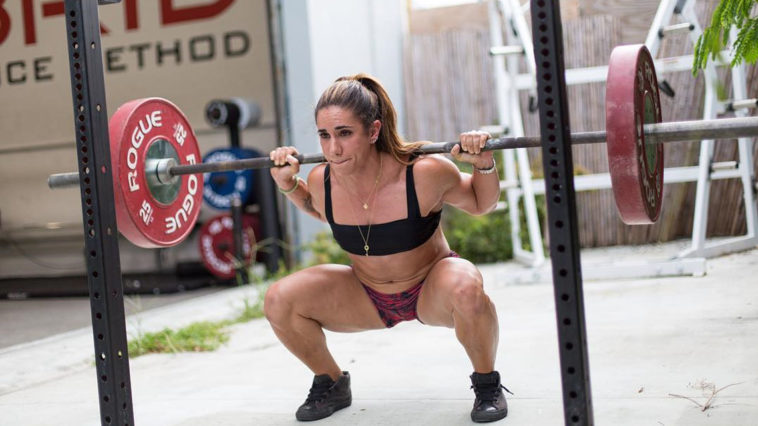Oh man. I’m going to be honest, when Jack, the head coach, asked me to write an article on the squat, it’s benefits and it’s function I must admit I almost bit his hand off. The squat, for me, is the KING of strength movements. Big guy walks in to the gym? First thing I’m asking him is what his squat is. Forget bench press, forget deadlift, if you can get under a bar and squat 440 solid ass pounds, butt to floor, I’m gonna be impressed. In ANY sport that requires speed, power, strength or explosively, you WILL see the squat incorporated in to resistance programs.
I grew up in the generation who watched Ronnie Coleman win back to back ‘Mr Olympia’ competitions, while being able to squat a whopping 800 pounds screaming “lightweight baby!” If that isn’t a test of pure athleticism, I don’t know what is. I still have dreams at night where Ronnie comes by, takes me by the hand, leads me to the squat rack, loads up my barbell and gently whispers in my ear ain’t nutting but a peanut, champ.

But enough of my fanboying over the squat, what’s the big deal? What makes it such a comprehensive and effective movement for building muscle mass, strength, speed and power? Why, in 10 years a trainer and coach, have I almost always included it in my client’s programming? Why should it be a staple of YOUR gym programming? Let’s take a look at some of the benefits of squatting and you can decide for yourself:
· Squats build ridiculous amounts of muscle: have you ever seen a strength or power athlete (think rugby players, sprinters, Olympic weight lifters) with tiny little chicken legs? I seriously doubt it. That’s because as far as hypertrophy (that’s the process of building muscle) goes, if you’re looking to add mass or tone to your pins, you simply CANNOT beat a squat variant. The complexity of the lift, which recruits several muscles working in tandem means that a maximal hypertrophic response is generated, if you’re working with the right weights and reps. You just won’t get the same benefits from any machine assisted lift as you will be sticking a barbell on your back and squatting deep. It’s a proven fact that the more muscles that are worked during a lift, the greater the endocrine (hormonal) response is generated in your body. As we mentioned in our article on deadlifts, a compound movement like a squat will elicit a great deal of growth and more ‘bang for your buck’, compared to something like a leg extension or calf raise.
· Squats can be performed with a surprising amount of variations to suit your needs: as one of the staple exercises in a myriad of sports squats have a huge amount of ways in which they can be performed to meet your individual goals. The back squat alone can be high bar, low bar, paused, done from a rack or a smith machine, wide stance, close stance…. the list goes on. You can perform the movement with the good ol’ barbell, or switch it up with kettlebells, dumbbells, sandbags, or even just use your own bodyweight. To add to the list, you can switch the emphasis to your quads by doing front squat variations and goblet squats. I could honestly write an entire article on different squatting types, but I need to go and squat once I’m done writing this, so stay tuned for the next edition.
· Squats build mobility, stability, coordination and improve your joint, bone and tendon/ligament health: there is no argument about it, putting a heavy weight across your shoulders and squatting it with good form not only forces your core muscles to work in tandem with your posterior chain to stabilize your body through the movement, the added weight whilst moving through a deep squat range of motion lengthens and strengthens muscles and tendons. Coupled with the well-researched correlation between resistance training and a healthy increase in bone density, and the central nervous system adaptations that occur over time, in response to coordinating the movement and you have an exercise which has a myriad of benefits outside of simply building a butt you can bounce a 2 pound coin off.

So, should you squat? YES. Should you squat regularly? YES. The takeaway here is that squatting can, and should form an integral part of almost any resistance (weight) training routine. The key skill is identifying the correct variation, rep range and weight that is suitable to meet your goals. As a side note I hear a LOT of guff along the lines of “squats are bad for your knees” or “I don’t want to get big thighs”. Both of those things are something that I could, again, write an entire article on but in summary; there is NO evidence to suggest that when performed correctly, squats have a detrimental effect on your knee joint, in fact it’s quite the opposite. And if you’re concerned about getting ‘bulky’ then make sure your training and nutrition are in line with your goals, in order to achieve the physique, you’re after.
Personal Trainer